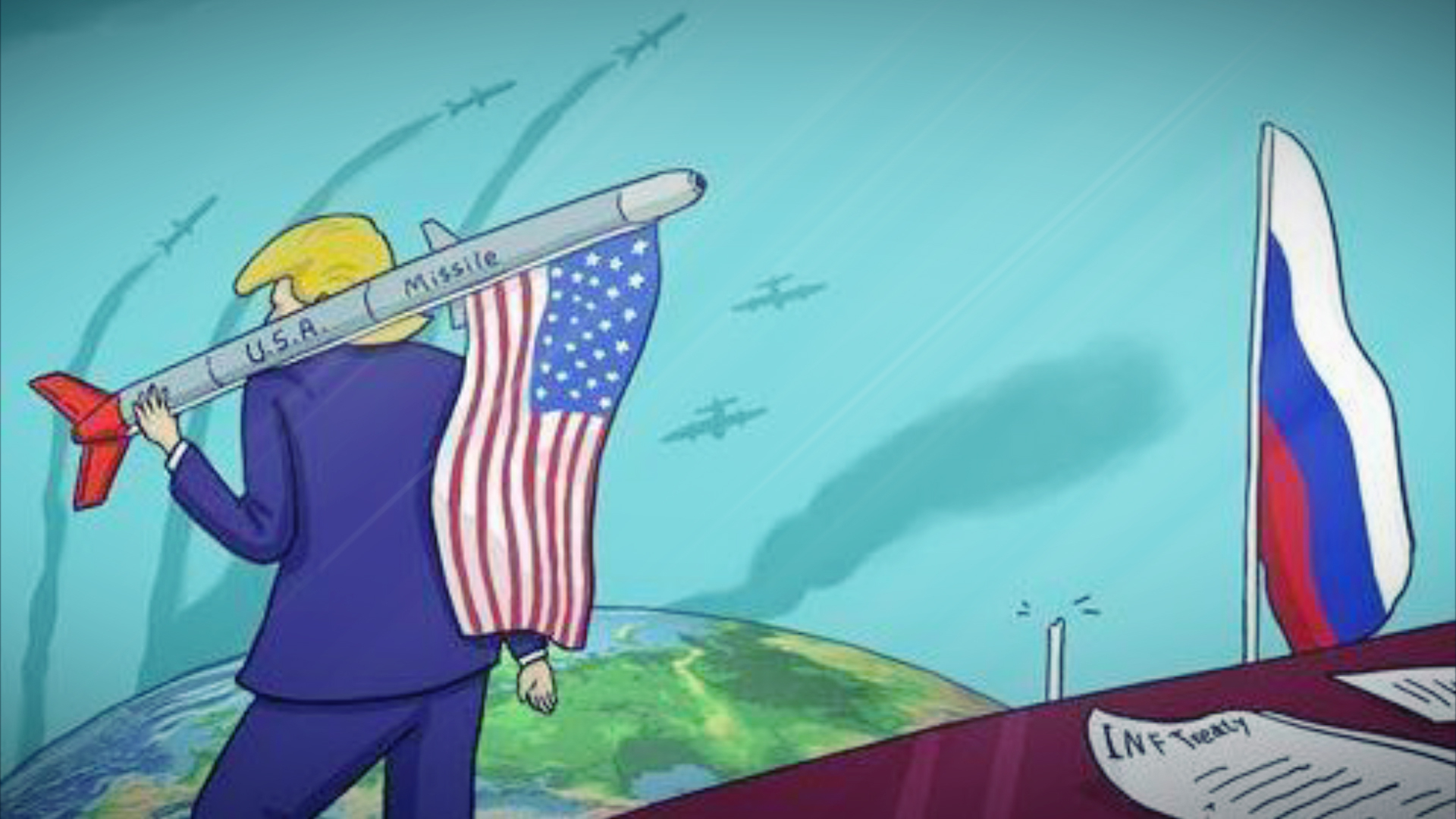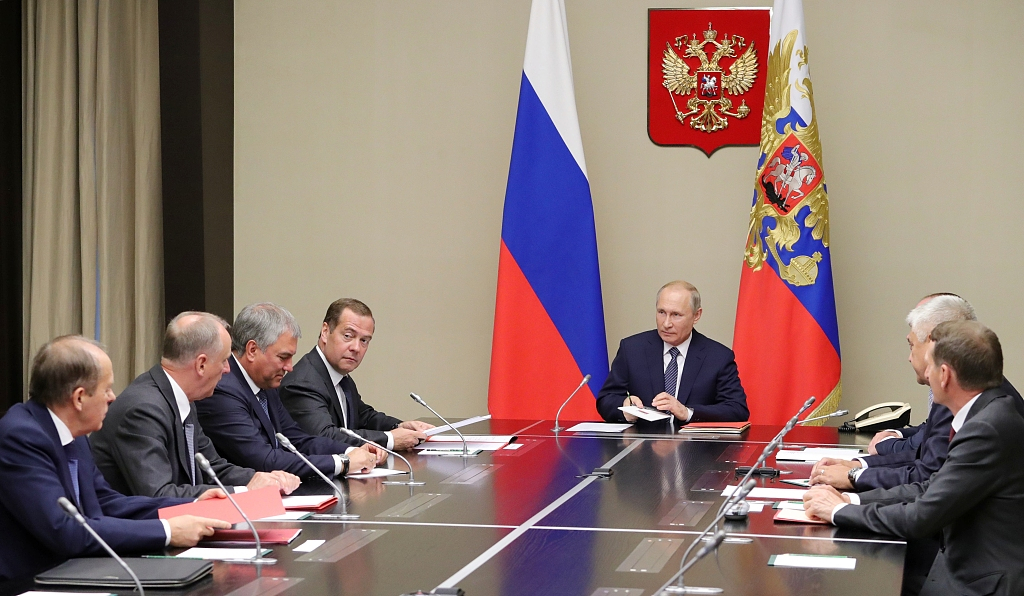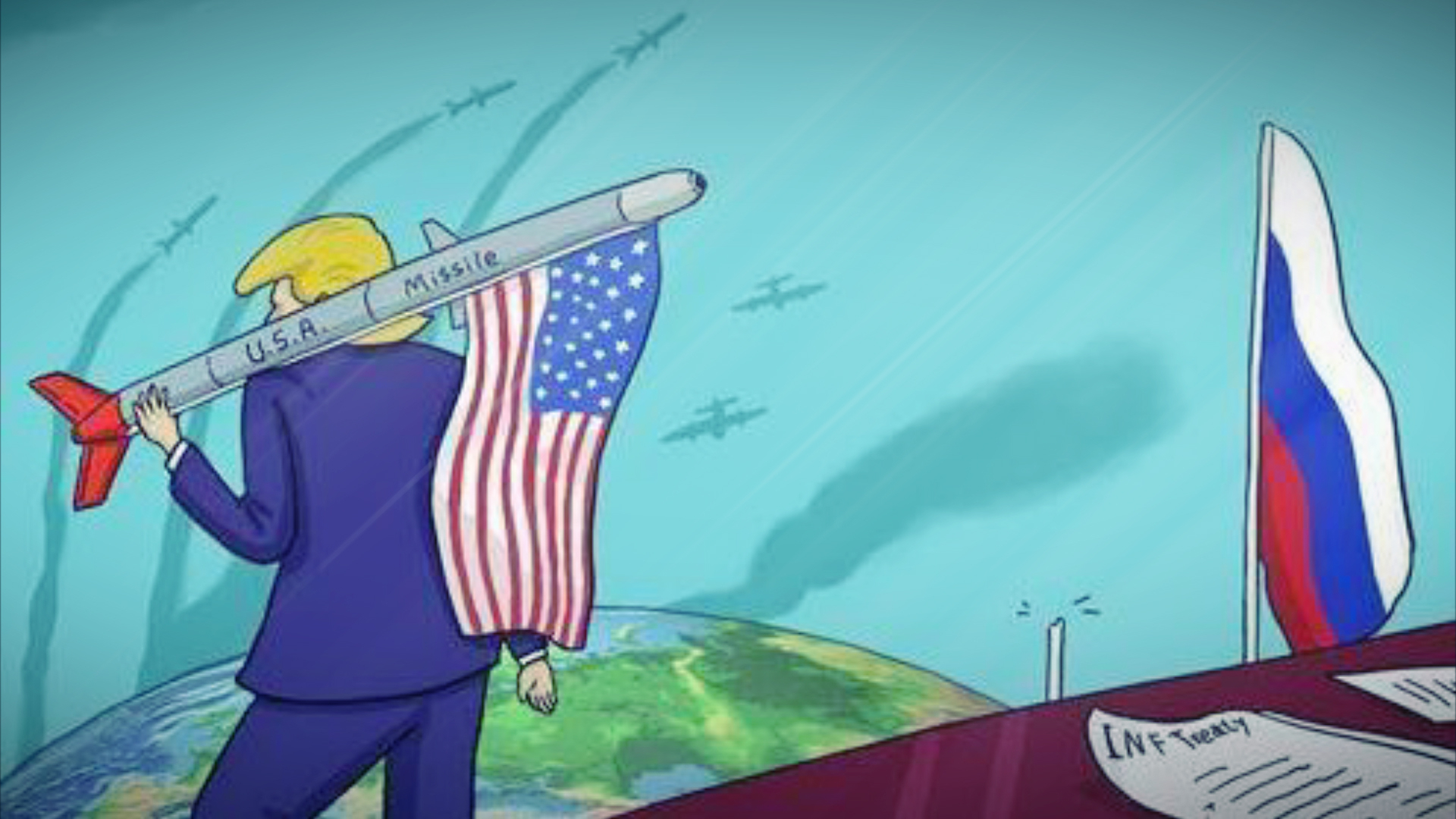

After more than three decades of successful nuclear disarmament, the U.S. and Russia withdrew from the Intermediate-Range Nuclear Forces (INF) Treaty. The treaty was signed by then U.S. President Ronald Reagan and Soviet leader Mikhail Gorbachev in 1987. With the collapse of this treaty, the UN Secretary-General Antonio Guterres warned that "the world will lose an invaluable brake on nuclear war." What does the demise of the nuclear treaty mean for global security? Where is the world heading towards after this?
Russian defense analyst Pavel Felgenhauer said that now, without the treaty, the risk of going into a regional or global war and using nuclear weapons early on is going to be much higher.

Russian President Vladimir Putin (C) chairing a security meeting in Moscow to deal with the U.S.' withdraw from INF Treaty on August 5, 2019. /VCG Photo
Cui Hongjian, director of the Department for European Studies at China Institute of International Studies, pointed out that to a large degree, INF Treaty is a promise from the United States and former Soviet Union to Europe and other parts of the world that there will be a brake mechanism for any potential nuclear war. Now, with the collapse of this treaty, there will be two ramifications. First, there will be no limitation, especially for major nuclear powers. The U.S. and Russia could have a large space to develop their intermediate-range missiles with nuclear warheads. Secondly, there will be no regulation for other countries, which may encourage their development of nuclear weapons. Therefore, now it's time for the international community to rethink a new way to protect the peace from the potential threat of an arms race.
Peter Kuznick, professor of history and director of the Nuclear Studies Institute at American University in Nagasaki, pointed out that in some way, the INF Treaty from a military standpoint was pretty much outdated. It only dealt with land-based missiles in a certain range. He also warned that we've been already in the early stage of new arms race and on the verge of very dangerous situation in terms of potential nuclear war. Now all nine nuclear powers are modernizing. Russia announced that it developed five new nuclear weapons, all of which can circumvent America's missile defense systems, and people in Washington welcome that new arms race. Therefore, we should not be blind to the new reality that the world is becoming more dangerous by the day.

The INF Treaty was a landmark arms control and disarmament agreement that eliminated from Europe the most dangerous weapons of the era and played a major role in maintaining the strategic balance in Europe. Now with its demise, Cui pointed out that there will be two big concerns for Europe. First, the possible military race, especially nuclear weapons race, between Russia and the United States. Second, the strategic decoupling with the United States. The INF Treaty itself is not only a regulation between Russia and the U.S., but also a kind of security guarantee provided from the U.S. to European countries. So, the collapse of the treaty is a big issue for European countries and they try to do something to salvage the situation. But, the problem is that "now the question is for most European countries they got less and less influence on Washington."
Following the U.S. withdrawal from the nuclear treaty, U.S. Defense Secretary Mark Esper told reporters that he wants to deploy intermediate range conventional missiles in the Asia-Pacific region "sooner rather than later." Fu Cong, the director of arms control at Ministry of Foreign Affairs of the People's Republic of China responded that China will not sit by and watch the United States deploy land-based intermediate-range missiles in the region, and China will be forced to take countermeasures. As for this response, Cui said it means that China will be devoting a lot, especially in diplomatic way, to stop the U.S. from expanding the military or nuclear weapon race into Asia. He also added that China should do something more actively. For example, China could consider providing more constructive solutions to deal with the situation after the collapse of INF Treaty or joining common efforts with other security players to do something more.
Hours before the U.S. pulled back from the arms control treaty, U.S. President Donald Trump imposed new sanctions on Russia over the poisoning of a former spy in Britain. Analysts say Trump's latest sanctions against Russia gave him more ammunition to declare himself tough on Russia. Felgenhauer held that Trump is under tremendous pressure from Congress and people on its own administration to do something more to punish Russia. "For Trump, of course, reelection is the prime target and strategic matters and relations with China or Russia are secondary to the need to get reelected."
(If you want to contribute and have specific expertise, please contact us at opinions@cgtn.com.)

Copyright © 2018 CGTN. Beijing ICP prepared NO.16065310-3
Copyright © 2018 CGTN. Beijing ICP prepared NO.16065310-3